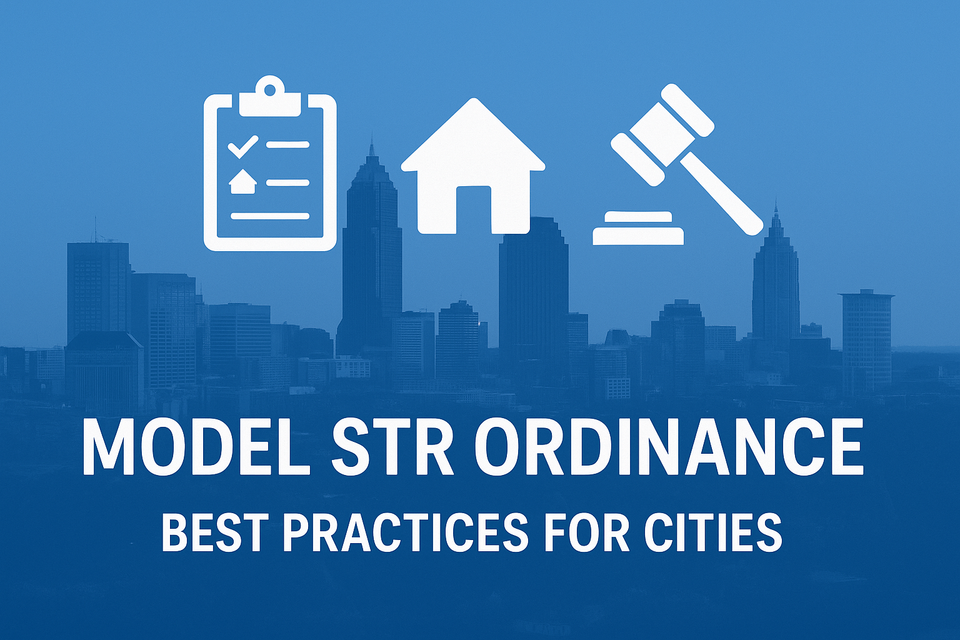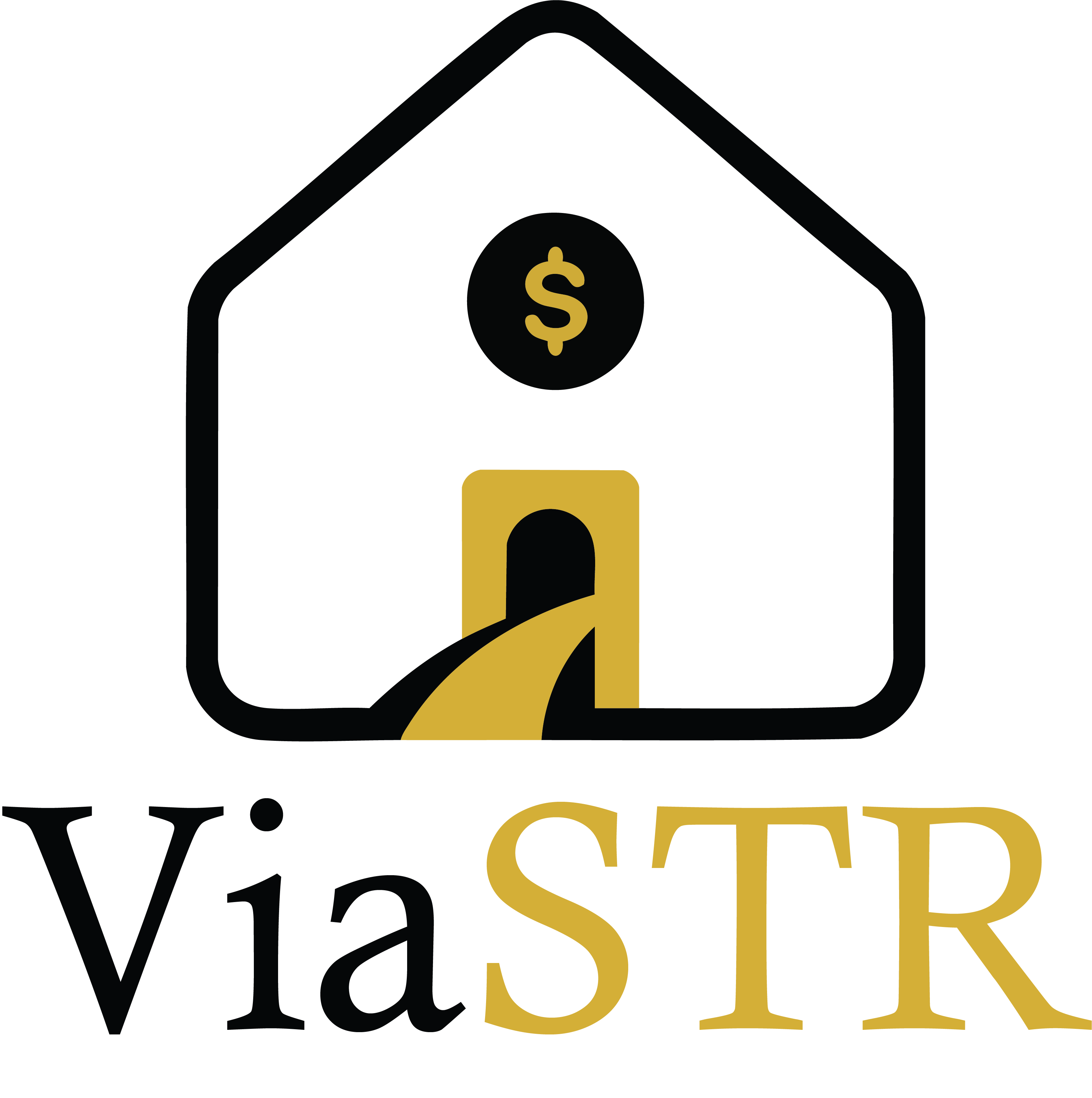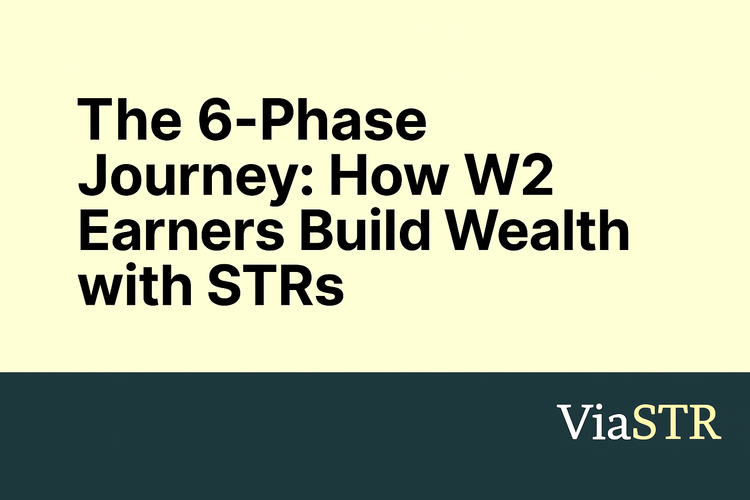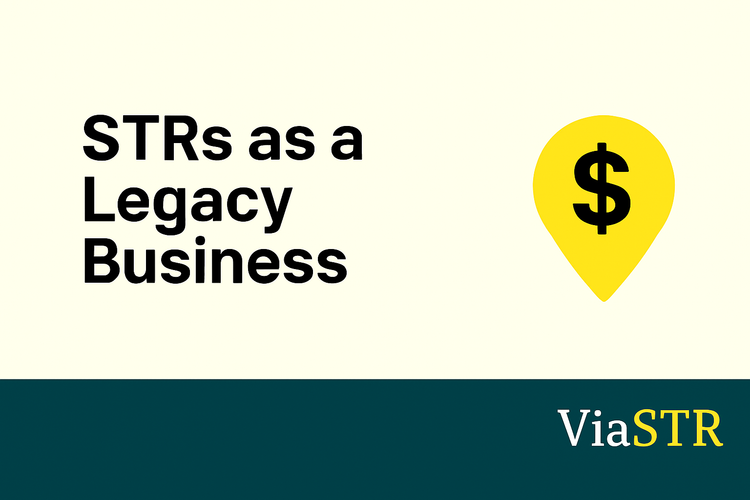Designing STR-Friendly Policies: A Guide for Local Leaders

At a Glance:
- STR bans and strict caps often fail, driving rentals underground and costing cities revenue.
- Policy levers that work: licensing, tiered permits, and tech-enabled enforcement.
- Real-world examples: Austin, Denver, NYC, Honolulu.
- Hosts can proactively shape fair regulations by showing up with data and solutions.
- ViaSTR compliance tools help operators stay aligned with evolving policies.
This article contains affiliate links. If you click and purchase, we may earn a commission at no extra cost to you.
As an Amazon Associate I earn from qualifying purchases.
Why Model STR Ordinances Matter
Short-term rentals are now a mainstream part of the housing and tourism economy. For local leaders, the question isn’t whether STRs exist—it’s how to regulate them in a way that balances community stability, tax revenue, and housing supply.
“Cities that work with STRs, not against them, win twice: they capture revenue and keep neighborhoods stable.” – STR Insights
Poorly designed rules—like blanket bans or arbitrary caps—often backfire, creating black markets while depriving communities of tax dollars.
Policy Levers That Work
1. Registration & Licensing Systems
- Austin, TX requires all STRs to register with the city and renew annually.
- Denver, CO implemented a primary-residence requirement but pairs it with licensing and a clear enforcement mechanism.
- Benefits: transparency, enforceability, and tax capture.
2. Tiered Permitting (Primary vs. Secondary Residences)
Not all STRs are created equal. Tiered systems allow fairness without overreach.
- Primary residence permits: homeowner lives there most of the year; more flexible.
- Secondary residence permits: stricter caps, higher fees, or zoning limits.
- Outcome: balance between protecting housing supply and allowing tourism.
3. Tech-Enabled Enforcement: Noise, Parking, Trash
Instead of blanket bans, cities can mandate preventive technology:
- Noise monitors like NoiseAware (alerts without recording voices).
- Parking minimums tied to guest count.
- Waste/recycling service add-ons via partners like Turno (#ad).
This reduces neighbor complaints while keeping properties online.
Why Caps and Bans Backfire
Case: New York City (Local Law 18)
- Outright bans on rentals under 30 days unless owner-occupied.
- Result: 15,000+ listings vanished, but an underground STR economy thrives with no oversight or tax revenue.
Case: Honolulu, HI
- Attempted to ban rentals under 90 days.
- Lawsuits, lost tourism dollars, and declining compliance followed.
- Instead of solving housing issues, the city lost revenue for infrastructure.
Lesson: bans create shadow markets, frustrate visitors, and hurt city budgets.
Drafting a Model STR Ordinance
Here’s a plain-English framework for cities:
- Registration & License: Require all STRs to register and renew annually.
- Tiered Permits: Differentiate rules for primary vs. secondary residences.
- Safety & Insurance: Require liability coverage.
- Technology Enforcement: Mandate noise monitors, trash plans, and parking compliance.
- Tax Capture: STR platforms remit occupancy tax directly to the city.
- Community Contribution: Encourage opt-in donations ($1 per night) to fund local initiatives.
Callout Box: What STR Hosts Can Bring to City Hall
- Market data (via AirDNA #ad).
- Proof of tax contributions.
- Noise/waste management solutions.
- Letters of support from local businesses.
- A clear statement: “I’m here to be a community partner.”
Why This Matters for Investors
For high-income W2 earners entering STRs, local policy isn’t just background noise—it’s the moat around your investment. Properties in regulation-friendly markets hold value longer, sustain tax benefits, and reduce legal risk.
Tools like ViaSTR’s compliance suite (REP tracking, insurance partners, legal templates) help ensure your portfolio stays aligned with evolving laws.



